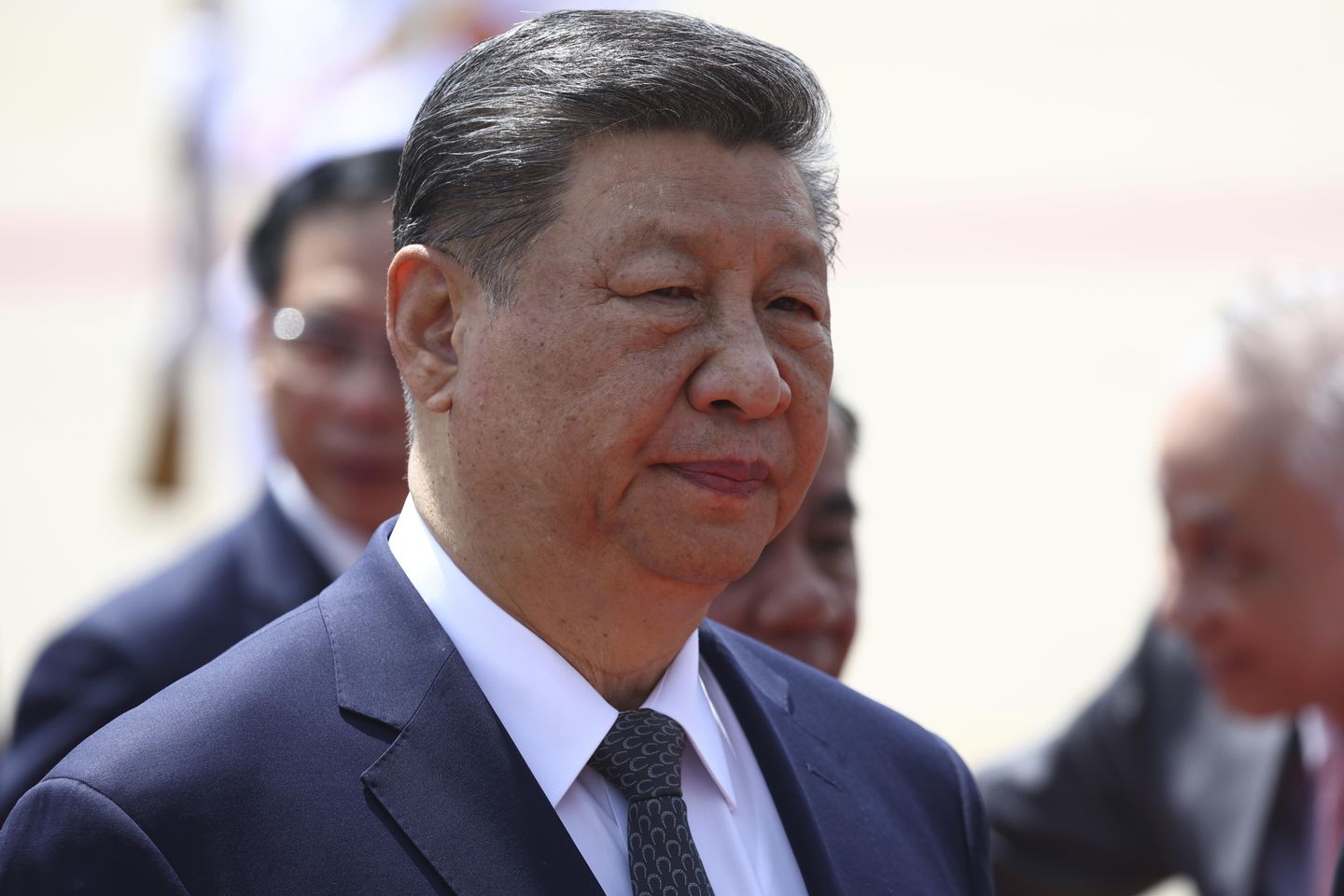
The Chinese Foreign Ministry said Monday that President Xi Jinping has not called President Trump about trade.
Beijing’s assertion contradicts Mr. Trump’s claim in a “100 Days” interview with Time magazine that the Chinese leader had reached out.
“As far as I know, there have not been any calls between the two presidents recently,” Foreign Ministry spokesman Guo Jiakun said. “Let me make it clear one more time that China and the U.S. are not engaged in any consultation or negotiation on tariffs.”
China imposed a 125% tariff on U.S. goods in retaliation for Mr. Trump’s “Liberation Day” plan to impose a 10% tariff on all imports and higher levies on countries that sell plenty of products in the U.S. but don’t buy nearly as much from American producers.
While many countries are negotiating trade deals during a 90-day freeze, tit-for-tat actions resulted in Mr. Trump slapping a 145% tariff on most Chinese imports.
Neither side seems willing to budge, and they can’t even agree on whether negotiations exist.
SEE ALSO: Trump’s treasury secretary says China ‘cannot sustain’ high tariffs on imports
Mr. Trump told Time he did not have plans to call Mr. Xi on his own.
“Has he called you yet?” the interview asked.
“Yep,” Mr. Trump said.
“When did he call you?” Time said.
“He’s called. And I don’t think that’s a sign of weakness on his behalf,” Mr. Trump said.
The Washington Times reached out to the White House for comment.
The contradiction is an ongoing theme between China and the U.S. Last week, Beijing said there had been no meetings even as Mr. Trump pointed to contact between the parties.
Treasury Secretary Scott Bessent said he had “interactions with my Chinese counterparts” at the annual spring meetings of the International Monetary Fund and the World Bank — “but it was more on traditional things like financial stability” and “global economic early warnings.”
“I don’t know if President Trump has spoken with President Xi,” Mr. Bessent said. “I know they have a good relationship and respect for each other, but, again, I think the Chinese will see that this high tariff level is unsustainable for their business model.”
Asked why China would deny that negotiations are ongoing, Mr. Bessent said, “I think they are playing to a different audience.”
Others have attributed the conflicting messages to Mr. Trump seeking to ease the concerns of financial markets over a trade war involving the world’s two largest economies.
On Monday, the Chinese side rejected Mr. Bessent’s assessment of the situation.
“China’s position on the tariff war is abundantly clear. Tariff and trade wars have no winners,” Mr. Guo said. “If a negotiated solution is truly what the U.S. wants, it should stop threatening and blackmailing China, and seek dialogue based on equality, respect and mutual benefit.”
Other countries are in active negotiations with the U.S., with major economies such as Japan and India at the forefront.
The White House hasn’t announced any deals to cut trade barriers or eliminate Mr. Trump’s threatened tariffs, though administration officials insist there are over a dozen deals in the works.
“We’re working around the clock. The trade team is working all day,” White House press secretary Karoline Leavitt said. “This administration is full speed ahead in cutting good and fair trade deals on behalf of the American worker.”
• Seth McLaughlin contributed to this report.












